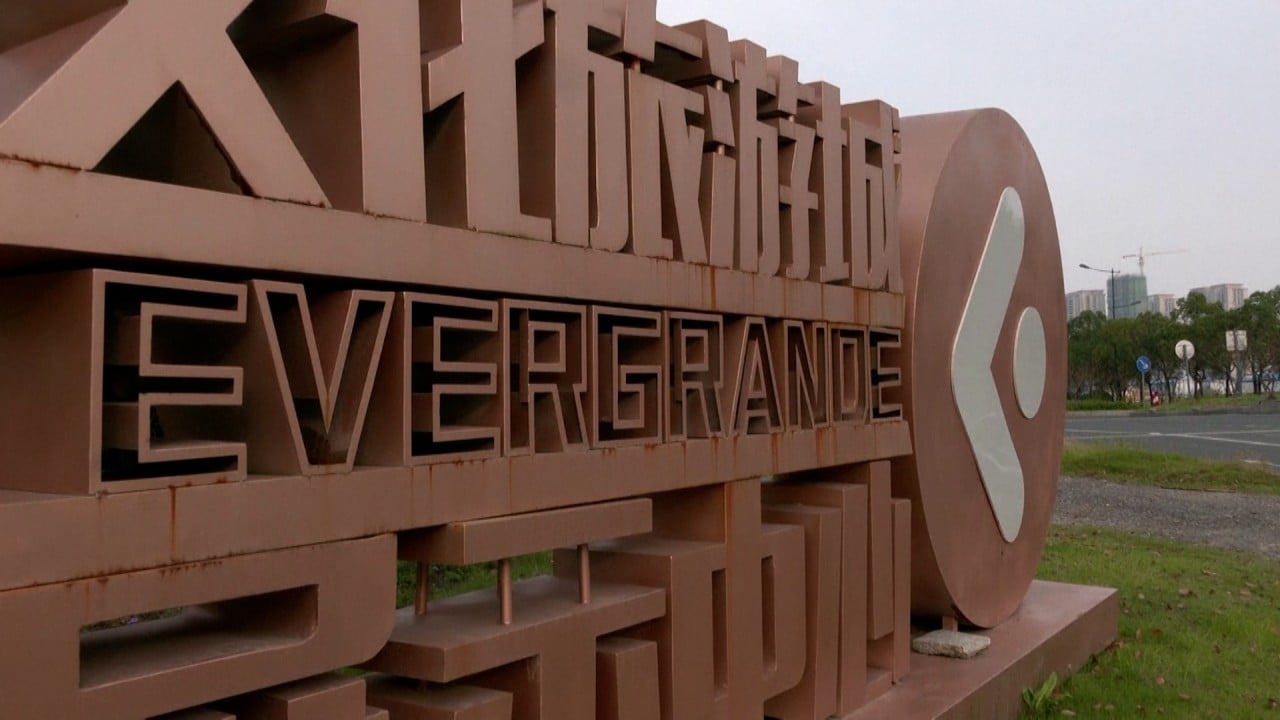
Can Chinese developers overcome the Evergrande infection? Moody’s sees confidence deficit while analysts make turnaround bets
- China Vanke, Country Garden and Greenland are among property stocks trading at multi-year lows due to the Evergrande ‘infection’
- A lot hinges on what China does with its policy tools, Bocom’s Hong Hao says
China Vanke, the biggest by market value, ended Friday’s trading at a three-year low in Shenzhen, while Greenland Holdings slumped in Shanghai to a level not seen since 2013. In Hong Kong, Country Garden also teetered near a 2018 low.
The sell-off, triggered by a credit squeeze at China Evergrande and other distressed peers, was compounded by rating downgrades and data showing sales in the world’s biggest housing market shrank 16 per cent in September from a year earlier, while new housing starts fell 14 per cent.

01:46
World’s most indebted developer, China Evergrande Group, buys time to repay more creditors
The outlook stays unless funding access improves, sales in the US$2.7 trillion market return to growth path in the next six to 12 months, and the stock of unsold homes does not get worse, he added.
Property stocks have been a loser since the Chinese government launched its “three red lines” policies in August last year to curb excessive leverage. They fell about 19 per cent versus a 4.3 per cent gain in the Shanghai Composite, according to Bloomberg data. They retreated 6 per cent in Hong Kong, while the Hang Seng Index climbed 1 per cent.
The losses run against the bullish calls in the market. More than three-fourths of analysts tracking China Vanke or Country Garden recommended buying them, according to Bloomberg data, with some arguing the worst has passed.
Analysts at Jefferies, CCB International and Sinolink Securities said the stocks offer values, noting a shift in policy tone and China’s determination to douse China Evergrande’s debt crisis. Besides, they traded at a 44 per cent discount to the book value in Shanghai and Shenzhen, the cheapest among all the industry groups, according to data provider Shanghai DZH.
“There will be no more headwinds for property stocks in the short term,” said Du Haomin, an analyst at Sinolink Securities, whose picks included Seazen Holdings and Sunac China. “More loosening policies will be on the way. “High-quality private developers are expected to deliver above-average returns.”
Top leaders in Beijing appear to have softened their policy at the margin, given that the sector, which accounts for one-quarter of gross domestic product by some yardsticks, is deemed too important to the economy.
Vice-Premier Liu He in September stressed the importance of the property sector, while the banking regulator echoed it by pledging to support first-time homebuyers. Some smaller cities including Yiwu in eastern Zhejiang province and Harbin in northern Heilongjiang, have eased some curbs to stabilise the market.

China Vanke could rise 37 per cent to 24.90 yuan in Shenzhen over 12 months, based on the average price targets tracked by Bloomberg. For Country Garden, the average price target implies a 39 per cent upside from the current level.
Shanghai and Chongqing offer hints of how China’s property tax would work, and be ignored by runaway home prices
A lot will hinge on what China does with the policy levers.
China cannot afford to keep stimulating the property market – a primary source of income inequality – under its “common prosperity” agenda to bridge that gap, according to Hong Hao, managing director at Bocom International in Hong Kong.
As China continues its rapid pace of urbanisation, property investment for growth is unlikely to bridge the wealth gap between urban and rural areas, he said.
“It would be difficult to argue for a growth model that continues to be dependent on the property sector.”

